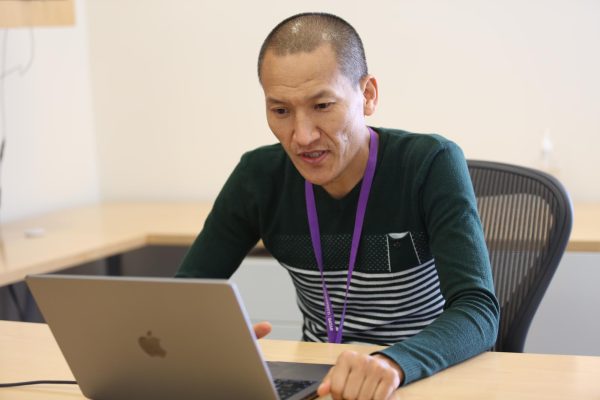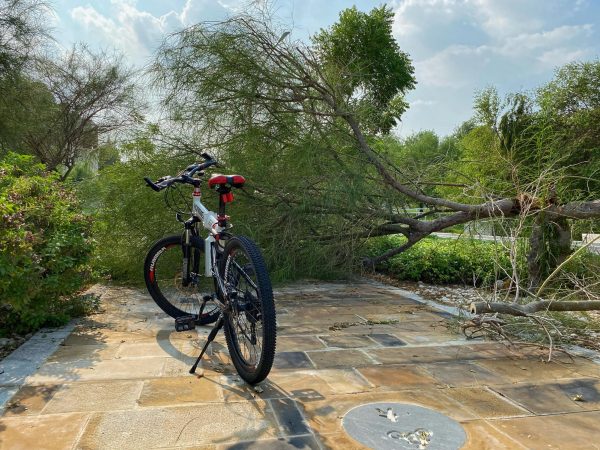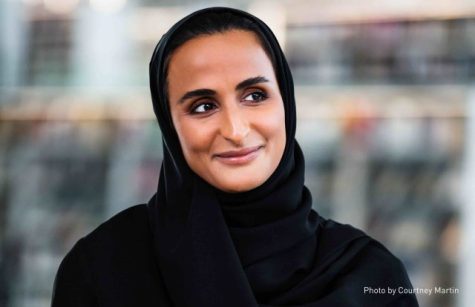Profile: GU-Q’s founding dean returns with new ambitions for the school
![James Reardon-Anderson, GU-Q's founding dean, is serving as the school's dean once again [Photo by Dean's Office, GU-Q]](https://thedailyq.org/wp-content/uploads/2016/09/GUQDean-e1473071356782.jpg)
“I always felt responsible for the school [in Qatar]. This was something I helped create. So I felt personal commitment to making this school what it could be. And I just have a good time in this job,” Reardon-Anderson said.
GU-Q has expanded and transformed since its establishment. Initially it shared a space with Qatar Foundation’s Liberal Arts School. Now GU-Q has its own building and boasts 250 students and 45 faculty members. Nevertheless, Reardon-Anderson has big plans. His vision is to increase both the number and quality of students.
“Your experience as an individual student depends upon who you’re surrounded by,” he said. “We want to surround students by the largest number of most qualified, talented students possible. That is our biggest challenge. We have now 250 students – we want 300 at least. The single biggest challenge to do that is financial aid.”
Reardon-Anderson and the GU-Q administration are currently working on a strategy to enable more students to attend the university through its tuition reduction grant. He said that the university has no shortage of applicants, but not enough students enroll because of the expensive tuition. The admission principle of Georgetown University at the main campus is need-blind and full-need, which means that the university reviews applicants regardless of their financial need, and if accepted, it meets their full financial need through a combination of grant and loans. “Our goal is to maintain the (same) principle (at GU-Q),” Reardon-Anderson said, adding that GU-Q currently tries to be need-blind and full-need “in so far as possible.”
In the past, Reardon-Anderson has juggled both teaching and administration duties. But he said he will not teach this fall semester in order to concentrate on his role as the new dean. He plans to resume teaching in the spring, when he will teach a course called “Map of the Modern World.”
Reardon-Anderson said he will serve GU-Q as the dean until 2018. He plans to continue teaching after that and said he does not want to retire any time soon.
“I taught for 31 years. Nothing is more exciting for faculty than going to the classroom with good students. It’s very exciting. You want to work hard just for them,” he said.
His particular academic expertise is on China. He has published five books on the history and politics of China, and he speaks fluent Chinese. He has previously worked in Taipei, China and has also taught courses in Chinese studies.
Reardon-Anderson succeeds Gerd Nonneman, who finished his five-year term as GU-Q’s dean this past year but remains on the Doha campus as a faculty member.
Students at GU-Q are excited to welcome the new dean. “It was very sad to say goodbye to our previous dean, but he [the new dean] is a great asset, reviving the culture of establishment and collaboration [with the main campus], because he brings back the very purpose which he started with, which is to bridge two societies and culture, East and West, and move forward,” said Dana Al-Anzy, a senior culture and politics major at GU-Q.
Reardon-Anderson said his goal is not to achieve a long list of accolades but to simply focus on making the students’ college experience as good as it can be.
“I can invent a lot of new curriculums, new courses, new ideas – that’s easy,” he said. “But to really create a strong student body, that’s a little bit harder.”












